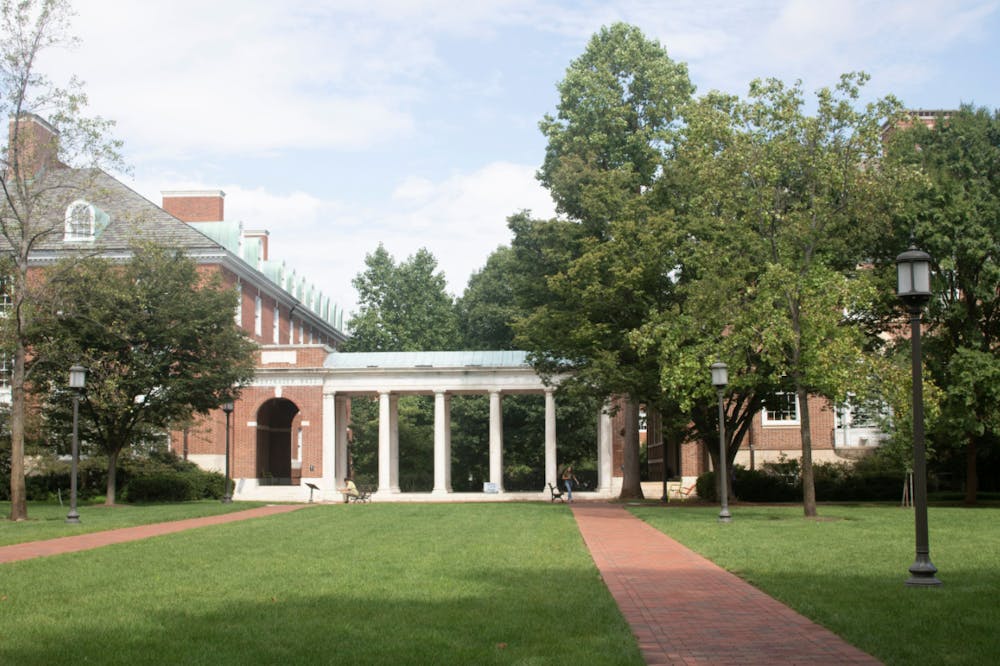The annual Out of the Darkness Walk, hosted by the American Foundation for Suicide Prevention (AFSP), took place virtually from April 24 to 25. It was Hopkins’s ninth year participating in the walk.
Participants could walk on either or both days with friends and family. They tracked their activities digitally on their fundraising page and shared the links to their donation pages on social media.
As of April 27, the statewide Virtual Campus Walk raised $46,730 out of the goal of $50,000. The 71 participants on the Hopkins team, including faculty, staff, graduate and undergraduate students, raised $8,529, exceeding their goal of $8,000.
The virtual format of this year’s walk afforded participants flexibility and increased engagement on social media. Participants can also continue walking and fundraising for AFSP with pledges and social media challenges through the next month.
Junior Rebecca Reed, peer listener for A Place to Talk (APTT), joined the Hopkins team on April 1 and recorded her active minutes throughout the month. She noted in an interview with The News-Letter that she found it easy to participate.
“Most of my active minutes came from going to COVID-19 tests, walking to get groceries, things like that,” she said. “They made it super accessible to Facebook and other online modalities, so I connected my fundraiser to my Facebook page and ended up meeting my goal in a single day.”
Previously, Hopkins graduate schools were primarily involved in the Out of the Darkness Walk in the East Baltimore area. In recent years, organizers at the Johns Hopkins Student Assistance Program (JHSAP) have been working with the Homewood Counseling Center and various undergraduate student groups to increase involvement across the University.
Susan Han, associate director of outreach at the Counseling Center, stressed the importance of collaborative programming in an interview with The News-Letter.
“Instead of being in our silos and offices, what can we do to work together to try and open up what we have to a broader population?” she said.
She noted that the Counseling Center, JHSAP, University Health Services Mental Health and student organizations on campus have been working together to increase access to mental health services.
JHSAP, the Counseling Center and APTT collaborated to create the Week of Action for Suicide Prevention and Awareness, a week of virtual info sessions and workshops that took place from April 9 to 16. Topics ranged from supporting a friend with mental health struggles and recognizing signs of depression, to various forms of self-care, such as music and yoga.
Han reflected on the importance of engaging with a variety of students and campus groups.
“The more different types of people participate, the more that spreads into their communities,” she said. “When students at a sorority or a fraternity come, or a student organization comes together and joins the walk, that spreads to the other members who didn’t come to the event.”
Han also described the palpable sense of community that comes with such participation.
“For seven years, every single year being part of this... when you can see the trail of people behind you, you feel like you’re joining in on an effort, and I think there’s a power in that,” she said.
Carol Spencer, student assistant specialist at JHSAP, encouraged the normalization of mental health topics in everyday conversation.
“Talking and listening about these mental health concerns is so important,” she said. “You never know who you’re going to reach by just being helpful or just saying hello to someone, even a stranger that is walking across campus, a student you might not know.”
Reed echoed this sentiment, specifically with those affected by suicide.
“What I have personally found helpful is that it’s often not about fixing the individual or saying ‘you shouldn’t have suicide ideation’... but rather supporting them and being with them in that space so that they don’t feel alone,” she said.
Reed encouraged students to inform themselves on how to recognize signs of suicidal behavior by going to an APTT training or a Counseling Center group workshop.
If you or someone you know is struggling with suicidal thoughts, you can seek help. Homewood Counseling Center: 410-516-8278, press 1; JHSAP: 443-287-7000, press 1; mySupport (Faculty and Staff Assistance): 443-997-7000, press 2; National Suicide Prevention Lifeline: 1-800-273-8255; Crisis Text Line: Text TALK to 741741.





